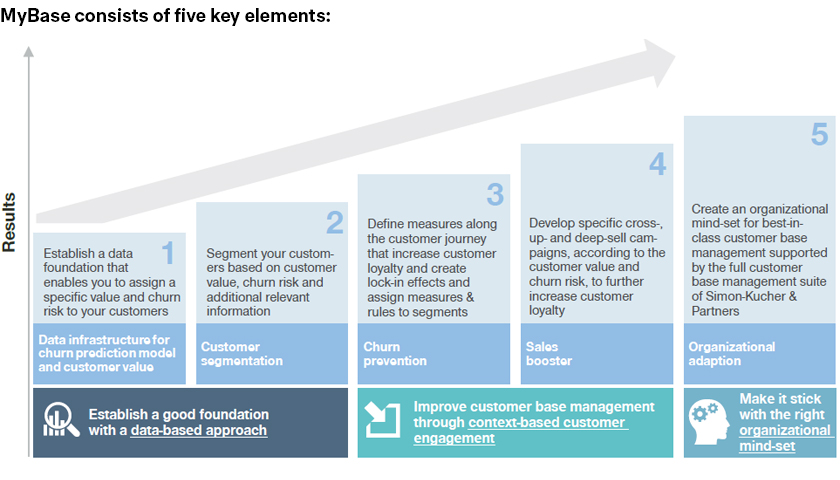Growing your business during a downturn is challenging. But our nine proven levers for consumer internet and subscription companies can help steer your business through a recession. Read our essential guide here.
Companies must adjust to the current economic climate if they are to successfully navigate the 2023 business landscape. It is a different environment from the past few years when B2C TMT businesses experienced strong growth during the pandemic. But with the cost-of-living crisis and fear of recession, people have generally been more cautious about their cash outgoings and cut back on discretionary spending.
What does this mean for consumer internet and subscription companies? How should these businesses respond to an increasingly challenging economic climate?
We have prepared a guide for these businesses to help them navigate through a recession. We have a similar helpful guide for B2B tech companies that you can read here.
But, first, a bit of good news.
Consumer confidence on the mend
Consumer confidence across the globe is showing signs of improvement. While this bounce back from the historic lows of 2022 signals optimism, it is still only slightly above 2009 levels. Recession fears continue to impact consumer behavior and confidence.
There is little certainty about the next year of economic development, and while consumer confidence is expected to recover steadily in most countries, in others it’s predicted to continue to decline.

Margin pressures and shrinking customer base affecting B2C TMT companies
Consumer internet and subscription businesses have evolved over time, experiencing huge growth and significant success. But like any other business, they must continuously connect with customers, keep innovating in their services, and remain cognizant of market trends.
Businesses face four main challenges that place cost and margin pressures on them as well as decrease the number of customers.
- Sustained high inflation
- Increasing cost of capital
- Reduction in overall customer spend
- Reduction in share of wallet
But, regardless of the downturn, opportunities exist for businesses that make strategic moves at the right time. Companies have the opportunity to adapt to current market needs, pivot toward changing customer demand, or even create entirely new categories of products.
Getting through a recession: Simon-Kucher’s nine proven levers for success
It’s undoubtedly a challenging time for many businesses. There’s not only the pressing need to survive but it’s equally important to remain competitive in the market.
We have developed a nine-action framework to help B2C TMT companies adapt to the challenging market environment and come out winning. These nine proven actions, by key components, are as follows:

Monetization strategy
- Carry out surgical price changes
Optimizing prices is one of the highest impact levers at any business’s disposal. But for this to succeed in a downturn, businesses must take customer perceptions, product roles, and competition into account. Surgical price changes must be well-thought-out because not every price change is the right one. It’s critical to identify the major psychological thresholds, consider customer reactions to any price increases, and avoid thoughtless, instinctive price reductions.
- Use promotions wisely
At a time when customers are more price sensitive, promotions can be a useful tool to drive volume but only after careful consideration. Businesses must be aware of the potential for long-term negative impacts, such as narrowing profit margins, negative impact on customer loyalty, etc. Using a targeted approach when applying promotions gives them the highest chance of success, and any new promotions should be evaluated thoroughly.
- Account for local dynamics
It’s vital to develop a localized strategy that takes regional economic differences into account. Reflect those variations in your pricing and promotions, and keep them up to date through regular customer research that measures changes in customer sentiment, willingness to pay, etc.
Offering strategy
- Differentiate packages
Provide customers with different options that fit their budget and willingness to pay instead of one standard package. ‘Less for less’ product options serve consumers with lower willingness to pay and also serve as a ‘downtrade’ option for current customers. Similarly, ‘more for more’ premium packages serve the segment of consumers willing to pay for quality, no matter the economic climate.
- Reflect the value of commitment
For subscription businesses, longer term lengths provide much-needed stability in a recession. When considering multi-year terms and what discount level to offer them at versus a flexible monthly price, businesses must factor in future price increases, renewal rates, renewal costs, and the value of predictability.
- Explore adjacent opportunities
A downturn can represent a great opportunity for growth if businesses expand into the right adjacent areas. Companies that can effectively leverage their core competencies to offer existing products to new customers or new products to their customer base are significantly more likely to come out of a recession ahead of their competition.
Support acts
- Utilize retention drivers
Businesses should strive to retain their existing customer base. It costs five times as much to attract a new customer as it does to gain new business from an existing one. Segmenting the customer base and using that data for churn prevention, and cross- and up-selling to current clients can be very effective. At Simon-Kucher, we have developed the MyBase platform to help businesses focus on customer retention.

- Leverage behavioral economics
Understanding how you can steer customer behavior can help businesses drive growth. For instance, people are more likely to pick the middle option when faced with extreme choices. To take another example, the order of choices affects customer decisions, so it’s possible to drive upsell by leading with premium products. Our case study shows an 18 percent average revenue per user increase after changing the offer presentation order.
- Segment your market
Recession fears often lead to businesses cutting back on marketing budgets. When funds are tight, you need your spend to be as efficient as possible. And this requires a segmented approach to marketing for which consumer research is paramount. Through this, businesses can identify segments and prioritize areas for improvements, such as drop offs in the funnel, potential to upsell or cross-sell etc., and ensure that marketing budget is surgically deployed.
That covers the nine levers we see as vital for any consumer internet or subscription business looking to succeed and grow despite the recessionary environment. Please contact us if you’re interested in exploring the nine levers in detail and discovering how they can help your business.







